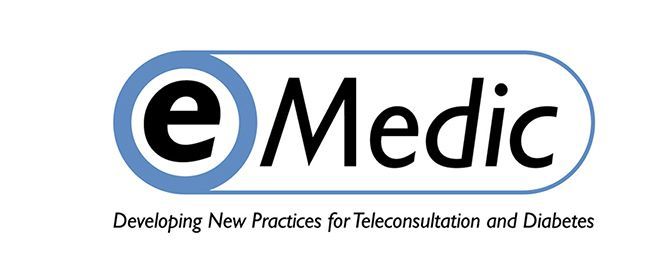
Cooperation Essential in the Implementation of Health Technology
The eMedic project tested remote consultation in the treatment of diabetes in pilots in Estonia, Latvia, Sweden and Finland. As the project closes, some of the experiments will remain in permanent use.
Remote consultation will be continued, as the experiences have been positive. This requires renewing and developing treatment processes. A central starting point in this work is the close cooperation between researchers, nursing staff and patients.
“The implementation of new processes and practices is especially facilitated by the investments made in committing the staff, functioning technology and ensuring technical and operational continuity”, says Project Manager Johanna Krappe from Turku University of Applied Sciences.
It is a well-known fact that the costs of health care are constantly on the rise. New health technology, eHealth, will renew treatment routines and the utilisation of patient information.
“It is essential that the new technology is integrated as a part of treatment processes. By focusing on questions on the functionality of technology and process management we can reinforce nursing staff’s and further also patients’ willingness to commit themselves to the renewals”, says Madis Tiik, who participated intensively in eMedic. Tiik also consulted the Finnish Innovation Fund Sitra in developing the electronic services of Finland’s health care system.
“The nurses and doctors who participated in the eMedic pilots found that the new working models had several benefits, and supported the use of new operations models”, Tiik continues.
In remote consultation, tablets and fixed video conference devices helped decrease the number of hospital visits of diabetic foot ulcer patients. The self-monitoring pilot improved diabetics’ possibilities and motivation to take care of their own well-being.
Good Results in Several Countries
The practices tested during the project in Finland, Sweden, Estonia and Latvia produced valuable information for the development of new working and treatment models in home care, basic health care and special health care.
“As the project comes to an end, some of the experiments will remain permanent practices. For example, at Turku University Hospital, remote consultation will be used in treating diabetic foot ulcers also in the future. In Estonia, which is a pioneer in electronic well-being services, the experiences from eMedic will be utilised in creating a new eHealth Strategy”, says Johanna Krappe.
The project closed on 30 April and the final partner meeting was organised in Tallinn. The partners considered the project as a major learning experience between the countries.
“The project increased competence both in implementing a major international project and, first and foremost, in issues related to health technology and its implementation. The project has helped create an extensive network whereby it is easy to cooperate also in the future and plan new projects", says Kaisa Jokela, who participated in the project.
The eMedic project, implemented in 2011–2014, was funded by the EU Central Baltic INTERREG IV A 2007–2013 programme. The Finnish participants were Turku University of Applied Sciences (Lead Partner), the Hospital District of Southwest Finland and Turku Science Park Ltd. The other participants were Karolinska University Hospital from Stockholm, Sweden, Tallinn University of Technology from Estonia and Pauls Stradins Clinical University Hospital from Latvia.